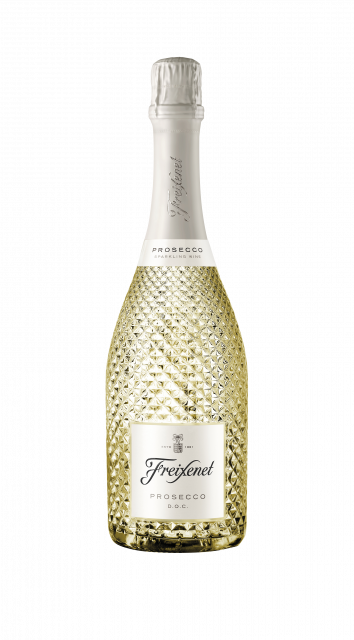This website uses cookies so that we can provide you with the best user experience possible. Cookie information is stored in your browser and performs functions such as recognising you when you return to our website and helping our team to understand which sections of the website you find most interesting and useful.
Henkell Freixenet’s global sales slide despite strong UK performance
Sparkling wine giant Henkell Freixenet saw its 2020 net sales slide by 7.4% on 2019 due to coronavirus challenges, despite a strong performance in the UK.

The wine and spirits division of the Oetker Group closed the 2020 financial year with net sales of €1.195 billion, which represents a 7.4% sales decline on 2019.
Dr Andreas Brokemper, chairman of the board of Henkell Freixenet, put the decline down to limited occasions to celebrate during the coronavirus pandemic.
“Although our total core brand growth was 5.2%, the impacts of the coronavirus pandemic were clearly evident. In the first wave, between March and June, consumption of sparkling wine and Champagne came to a stop in many places.
“After a fast recovery in the summer months, we were hit by the second wave over Christmas and the New Year, when consumption is traditionally high. Sales of Sekt, Cava and Champagne were particularly affected, whereas Prosecco sales increased slightly,” Brokemper said.

“We were able to expand our Sekt and Prosecco market share. The Freixenet brand performed particularly well and achieved growth despite the pandemic. Wine sales grew significantly as a result of the trend of enjoying wine for a broader range of at-home occasions,” he added.
The duty-free side of the business “practically dried up”, while sales in Spain, Italy and France took a big hit due to the closure of the on-trade.
“In Italy and Spain one out of every two bottles is sold to restaurants, and one out of four in France. So the lockdowns have hit us particularly hard in these countries,” Brokemper said.
The situation was sunnier in the UK, where the i heart Wines and Freixenet brands saw double-digit growth, driven by new launches including the Freixenet Diamond Italian Wine Collection, Care for Wild Wines, i heart Prosecco Rosé and Mionetto Prosecco Rosé.
The i heart Wines brand, which turns 10 this year, grew by 43% last year to 31 million bottles, with over 25m bottles sold in the UK alone, representing 38% growth. Internationally, the brand achieved 76% growth.
Brokemper puts i heart’s success in the UK down to good distribution in convenience stores, which is where a lot of consumers ended up shopping during the pandemic rather than going to crowded supermarkets.
He also feels the brand has performed so strongly due to being reactive to consumer demands and creating the wine styles consumers want to drink, rather than releasing wines and hoping that consumers show an interest.
“It’s a very consumer-facing brand that offers great value for money, and consumers like the simplicity of it,” Brokemper said.
He added that both i heart and Freixenet benefitted during the pandemic from being trusted brands that consumers recognised, as wine shopping sped up and became more limited to well known labels customers felt comfortable with.
With international travel halted, the idea of travelling through the wine in your glass also helped to boost the performance of Freixenet in the UK.

Worldwide sales of Mionetto Prosecco declined by 2.5% to 26.6 million bottles due to on-trade closures, while the Freixenet brand achieved sales of 99.3 million bottles in 2020, corresponding to 5.1% growth.
While the company’s global sparkling sales took a hit last year, Brokemper says that consumers “created their own occasions” to crack open a bottle of fizz, celebrating small victories like getting to the end of a long day of Zoom meetings.
He feels the pandemic will lead to a premiumisation trend within the sparkling wine category, with consumers seeking sparklers of higher quality and showing more of an interest in learning about the different quality tiers within the sector.
“A lot of new wine lovers came into the market last year and were buying at a slightly higher price online and educating themselves about different styles.
“I think the premiumisation trend will speed up due to the pandemic. German consumers saved more than ever before last year, and were spending some of their savings on better quality wine,” Brokemper said.
Henkell Freixenet fully acquired online wine retailer Slurp in last year, whose 2020 turnover was 2.5 times that of 2019.
Showing how committed the company is to the UK market, the sparkling wine giant also acquired on-trade specialist Jascots Wine last year when it was on the brink of insolvency.
“We always wanted to be more involved in the on-trade and Jascots presented us with a great opportunity. The company the brink of insolvency when we met the team and the administrator wanted to sell their wines, so we have to move quickly.
“It only took us a day to make our decision – they are a young ambitious team with clear ideas, so provided a great way to strengthen our business in the UK.”

Henkell Freixenet’s performances in the Americas last year was less positive, with sales dipping by 20% due to the impact of the shuttering of the on-trade in the US and Mexico.
“We assume that demand will pick up in the on-trade in the second half of the year, depending on the progress of the vaccination campaign and the further development of the pandemic.
“This year we expect stable to slightly growing consumption in the wine, sparkling wine and spirits segment. When restaurants reopen and tourism returns, we will see growth, especially in the Mediterranean markets, and when flights resume duty-free business is likely to slowly restart, Brokemper said.
“As a result of our strong regional and brand diversification, we are confident we can continue to overcome the challenges associated with the crisis,” he added.
Brokemper told db that the return to growth will be dependent on when consumers feel confident about meeting up and socialising again.
“It’s less about vaccinations and more about people doing their own risk assessments about whether they feel safe to fly or eat inside a restaurant.
“People need to feel confident about travelling, meeting friends and socialising again. Things will bounce back when people have full confidence that the virus is under control.
“The biggest part of the year for our business is still in front of us, so our performance will very much depend on what the situation is like at the end of the year,” he said.

